Mohammed A. A. Al-qaness
Swarm Learning: A Survey of Concepts, Applications, and Trends
May 01, 2024



Abstract:Deep learning models have raised privacy and security concerns due to their reliance on large datasets on central servers. As the number of Internet of Things (IoT) devices increases, artificial intelligence (AI) will be crucial for resource management, data processing, and knowledge acquisition. To address those issues, federated learning (FL) has introduced a novel approach to building a versatile, large-scale machine learning framework that operates in a decentralized and hardware-agnostic manner. However, FL faces network bandwidth limitations and data breaches. To reduce the central dependency in FL and increase scalability, swarm learning (SL) has been proposed in collaboration with Hewlett Packard Enterprise (HPE). SL represents a decentralized machine learning framework that leverages blockchain technology for secure, scalable, and private data management. A blockchain-based network enables the exchange and aggregation of model parameters among participants, thus mitigating the risk of a single point of failure and eliminating communication bottlenecks. To the best of our knowledge, this survey is the first to introduce the principles of Swarm Learning, its architectural design, and its fields of application. In addition, it highlights numerous research avenues that require further exploration by academic and industry communities to unlock the full potential and applications of SL.
A Mobile Cloud-Based eHealth Scheme
Apr 15, 2020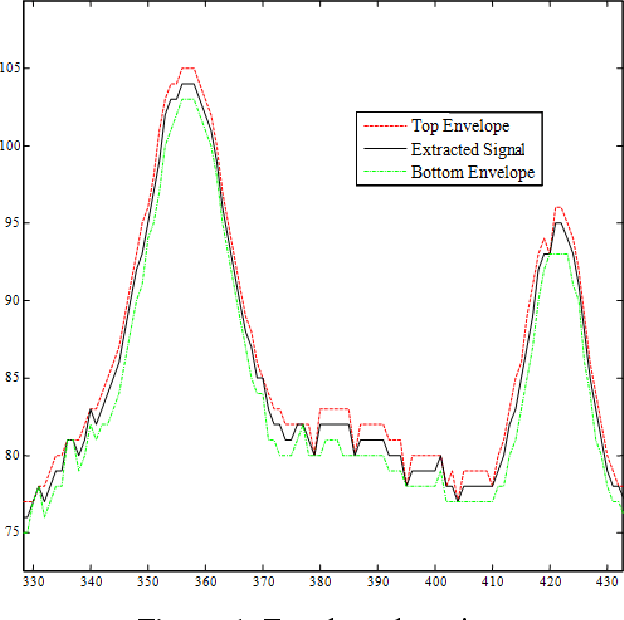
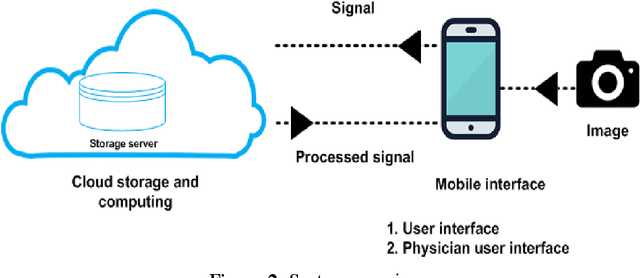
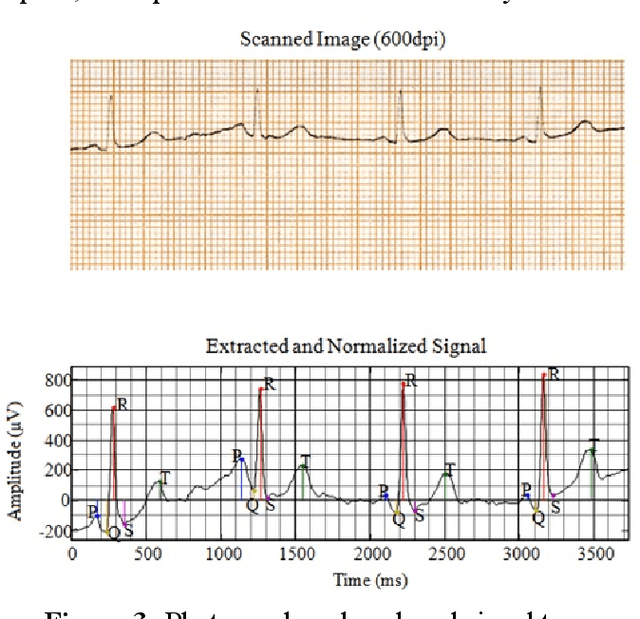
Abstract:Mobile cloud computing is an emerging field that is gaining popularity across borders at a rapid pace. Similarly, the field of health informatics is also considered as an extremely important field. This work observes the collaboration between these two fields to solve the traditional problem of extracting Electrocardiogram signals from trace reports and then performing analysis. The developed system has two front ends, the first dedicated for the user to perform the photographing of the trace report. Once the photographing is complete, mobile computing is used to extract the signal. Once the signal is extracted, it is uploaded into the server and further analysis is performed on the signal in the cloud. Once this is done, the second interface, intended for the use of the physician, can download and view the trace from the cloud. The data is securely held using a password-based authentication method. The system presented here is one of the first attempts at delivering the total solution, and after further upgrades, it will be possible to deploy the system in a commercial setting.
Resource-Aware Network Topology Management Framework
Feb 26, 2020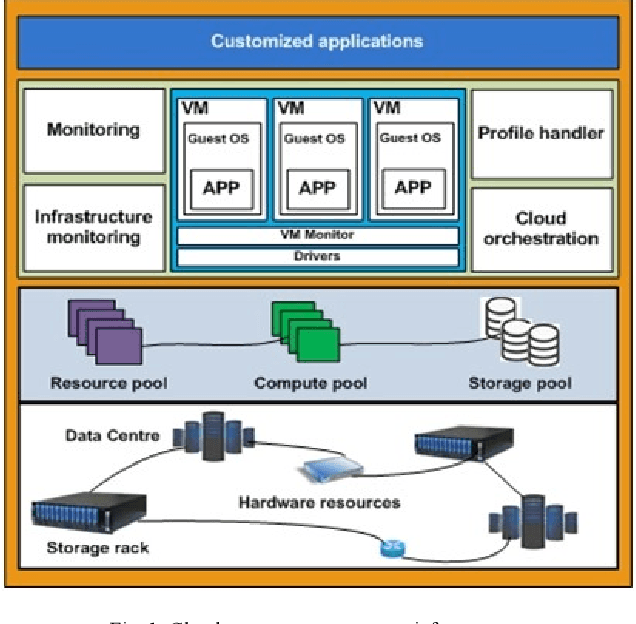
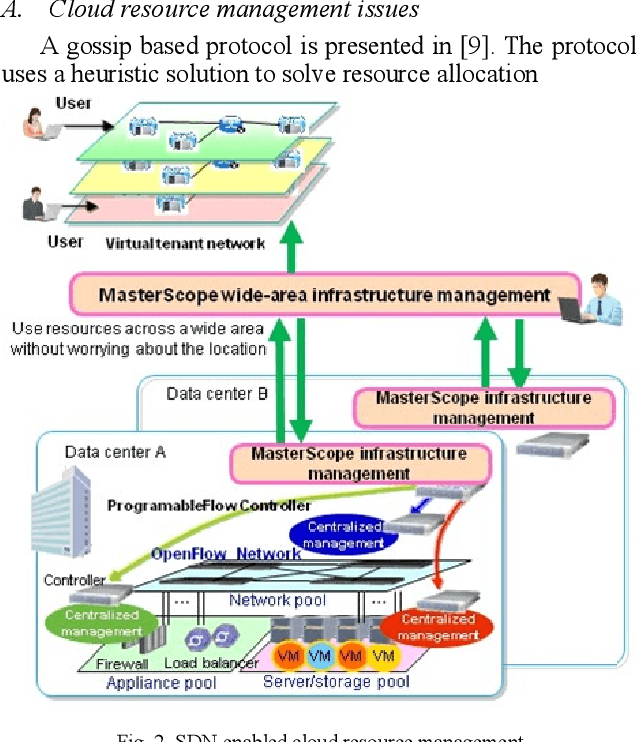
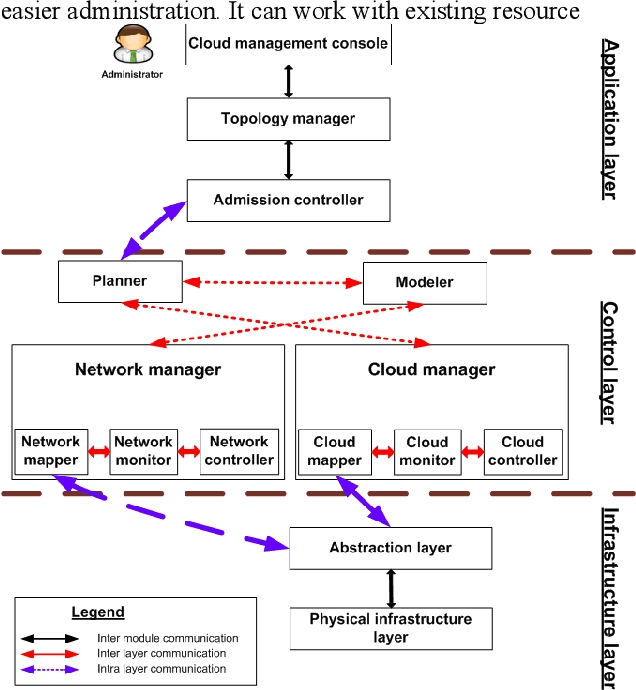
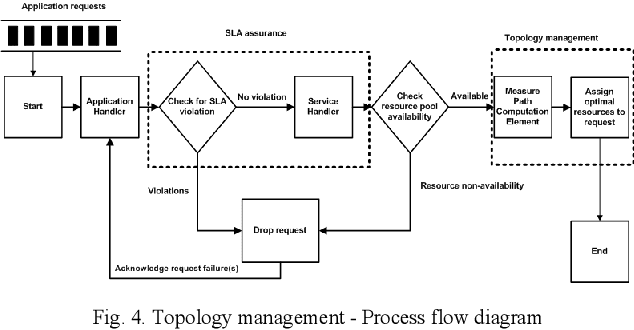
Abstract:Cloud infrastructure provides computing services where computing resources can be adjusted on-demand. However, the adoption of cloud infrastructures brings concerns like reliance on the service provider network, reliability, compliance for service level agreements. Software-defined networking (SDN) is a networking concept that suggests the segregation of a network data plane from the control plane. This concept improves networking behavior. In this paper, we present an SDN-enabled resource-aware topology framework. The proposed framework employs SLA compliance, Path Computation Element (PCE) and shares fair loading to achieve better topology features. We also present an evaluation, showcasing the potential of our framework.
 Add to Chrome
Add to Chrome Add to Firefox
Add to Firefox Add to Edge
Add to Edge